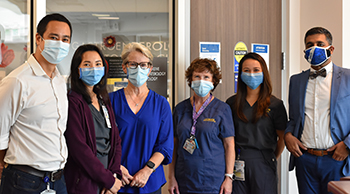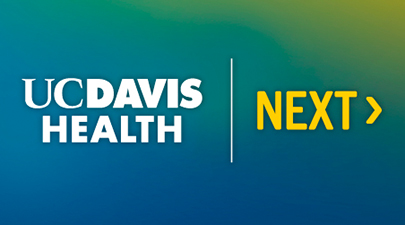UC Davis Health launches digital health formulary starting with HealthPROMISE app that allows IBD patients to track their symptoms
UC Davis Health, Chief Information and Digital Health Officer of Innovation Technology, Ashish Atreja envisions the future of healthcare built upon the idea of “healthcare at home”: using technology to monitor patient data through applications and leveraging digital devices to proactively monitor patients' symptoms in real-time. This at-home care approach allows medical staff to follow up with patients and engage in necessary intervention practices to control symptoms and close the loop on how patients are doing on a day-to-day basis. UC Davis Health is focused on developing and leveraging the technology for such applications in partnership with the Cleveland Clinic, Mount Sinai Hospital, and Northwestern University.

As a part of this research, gastroenterologist (GI) providers can now “prescribe” a mobile application called HealthPROMISE for IBD (inflamatory bowel disease) patients to help track their symptoms and provide educational content. This work builds on the collaborative effort with Mount Sinai, Northwestern and Cleveland Clinic as part of NIH 1U01TR002997-01A1. Providers place a Digital Health order in Epic, which generates a text message for patients to download the application, then create a HealthPROMISE account. The questionnaire data from the application flows back into the patient’s chart in Epic, where their GI care team can review the data.
Once a patient receives the text message with the link to register for the application, they are directed to an onboarding screen to fill out an initial two-question questionnaire and create a password-protected account. Patients can then download the application and fill out various questionnaires that help track their symptoms and history related to their diagnosis. The data is sent back into their Epic chart for providers to see and ensures information is located in one place. Based on this data, an alert message generates automatically if a patient answers a specific question that requires a clinician’s attention. The GI nurse pool monitors these messages and notifies a GI Clinic clinician to follow up with the patient. The idea comes from a personal situation that Atreja had at the Cleveland Clinic with a patient who had only 17 bowel movements in a 17-year span.
“How can you live like that?” Atreja asked the patient. His patient was suffering from IBD and never knew that the disease could be better controlled. “These patients suffer from diarrhea and bleeding [requiring] surgery multiple times in their life. [It is] a very disabling disease, but it can be controlled with the right medicines most of the time. Ninety-nine percent of life is [spent] outside of the hospital, and that’s where physicians have zero visibility. So, I thought, what if I had a window, an opening, where I know what this patient is going through? That would have saved years of misery. That’s [what] led to this concept of remote monitoring. So, if we get to know what patients are going through, we are better able to give the right medicine at the right time to prevent complications.”
Right now, HealthPROMISE is the only available app. However, more apps are in the works to help monitor patients who suffer from other chronic diseases. In the future, we hope physicians will be able to select from several apps. This will allow providers across practice areas to leverage digital health formulary and find different apps that they could prescribe based on the patient’s criteria or diagnosis.
The initial phase of the application went live at the Midtown GI clinic on August 12. After the initial pilot phase, the application will roll out to other GI clinics within UC Davis Health and then eventually to other health care organizations to ensure that and patients receive the proper diagnosis and care.
UC Davis Health has recently created Digital CoLab in Innovation Technology Division which will help expand use-cases of digital health formulary with evidence-based digital navigation, monitoring and digital therapeutics tools across clinical and research service lines to support vision of bringing -Tomorrow’s Healthcare Today.





